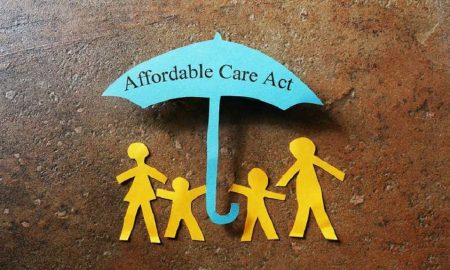
The Dilemma of Uninsured Population & Health Coverage in the U.S.

Health coverage in the U.S. is a subject that sparks debates, reforms, and constant changes. It is one of the most pressing issues facing the nation, with millions of Americans left uninsured. Despite multiple attempts to address this problem, the complexity of the U.S. health insurance system leaves many wondering how we got here and, more importantly, how we can move forward.
The situation has undoubtedly improved over the past decade, particularly since the introduction of the Affordable Care Act (ACA). Still, roughly 8% of the population remains without health coverage.
However, this is not just a policy problem. It is a human dilemma that impacts the lives, well-being, and financial stability of individuals across the country.
The Evolution of Health Coverage in the U.S. Over the Years
The concept of health coverage in the U.S. has undergone significant changes over time. Before the ACA, millions more Americans were uninsured, with healthcare costs continuing to rise. The ACA aimed to tackle this by expanding Medicaid, establishing health insurance marketplaces, and providing subsidies to make health coverage more affordable for the general population.
Medicaid expansion allowed low-income individuals and families to access coverage, particularly in states that opted into the program. At the same time, marketplaces gave individuals without employer-provided health insurance a way to shop for affordable plans.

Cotton Bro / Pexels / Although there have been many reforms in health coverage, they do not entirely solve the problem.
There are still gaps in the system. For instance, some states chose not to expand Medicaid, leaving many low-income individuals in a coverage gap—unable to qualify for Medicaid and unable to afford marketplace insurance. Additionally, the high costs of premiums and out-of-pocket expenses deter some people from purchasing insurance at all.
Why Are People Still Uninsured?
Despite the reforms, health coverage remains out of reach for millions. One significant reason is cost. Even with subsidies and Medicaid, healthcare in the U.S. can be incredibly expensive. Deductibles and copayments can add up quickly, especially for those with chronic conditions or unexpected health crises.
For many low- and middle-income families, this can mean choosing between paying for health coverage or meeting other basic needs like rent or food.
Another factor is employment status. Many Americans receive health coverage through their jobs. But if you are self-employed, working part-time, or employed in a gig economy role, affordable coverage can be hard to come by. Even if an individual qualifies for insurance through the ACA marketplace, navigating the system can be overwhelming. Thus, this leads to some to forgo coverage altogether.

Cotton Bro / Pexels / When states refuse to expand Medicaid or roll back certain protections, more people fall into the uninsured category.
Health crises, such as the COVID-19 pandemic, have also exposed the fragility of the system. Many people lost their jobs and their health coverage, exacerbating the situation for millions.
Health Coverage & the Affordable Care Act (ACA)
The Affordable Care Act is one of the most significant health reforms in recent U.S. history. You bet! It has increased health coverage rates. Before the ACA, over 16% of the population was uninsured. Today, that number has been cut in half. The law aimed to reduce the uninsured rate through Medicaid expansion, subsidies for marketplace insurance, and protections for individuals with pre-existing conditions.
However, the ACA has faced several challenges, from legal battles to political opposition. Some provisions, such as the individual mandate, have been rolled back, while others continue to face scrutiny. Despite these challenges, the ACA remains a cornerstone of health coverage in the U.S. It continues to provide millions with access to affordable insurance.
More in Health Insurance
-
`
Chad Smith and Will Ferrell Drum-Off – A Night of Comedy and Music
The year was 2014. The late-night talk show landscape was abuzz with a brewing battle unlike any other. It wasn’t a...
July 8, 2024 -
`
Can Coughing Cause Back Pain?
Back pain is a common complaint among many individuals, but did you know that a simple action like coughing can exacerbate...
July 5, 2024 -
`
How to Overcome Imposter Syndrome?
Imposter Syndrome is a familiar term many recognize as a psychological state where individuals doubt their accomplishments, fearing that others will...
June 27, 2024 -
`
Which Peptides Are Best for Anti-Aging?
For those seeking to combat the signs of aging and maintain a youthful appearance, the world of skincare can feel overwhelming....
June 18, 2024 -
`
Celebrities with Celiac Disease – Inspirational Stories and Struggles
Celiac disease is a serious condition, and even the rich and famous aren’t immune. Many celebrities have been open about their...
June 10, 2024 -
`
How to Fix Poor Sleep Hygiene for Better Rest
Sleep is a fundamental human need, as crucial for our well-being as a healthy diet and regular exercise. Yet, many people...
June 6, 2024 -
`
5 Easy & Effective Ways of Coping With Depression
Depression is more than just feeling sad or having a bad day. It is a pervasive mental health condition that affects...
May 30, 2024 -
`
Top 10 Practical 60th Birthday Ideas For Everyone
Turning 60 is a milestone worth celebrating! Whether you are planning your own bash or organizing a celebration for a loved...
May 24, 2024 -
`
What is the Meaning of Angelina Jolie’s Back Tattoo? Explore
If you have ever caught a glimpse of Angelina Jolie’s back tattoo, you might have wondered, “What is the story behind...
May 17, 2024















You must be logged in to post a comment Login